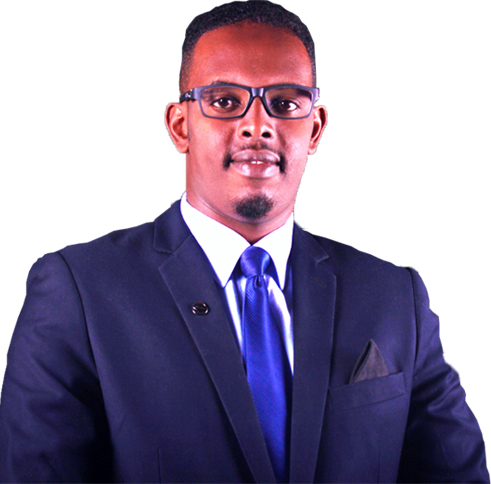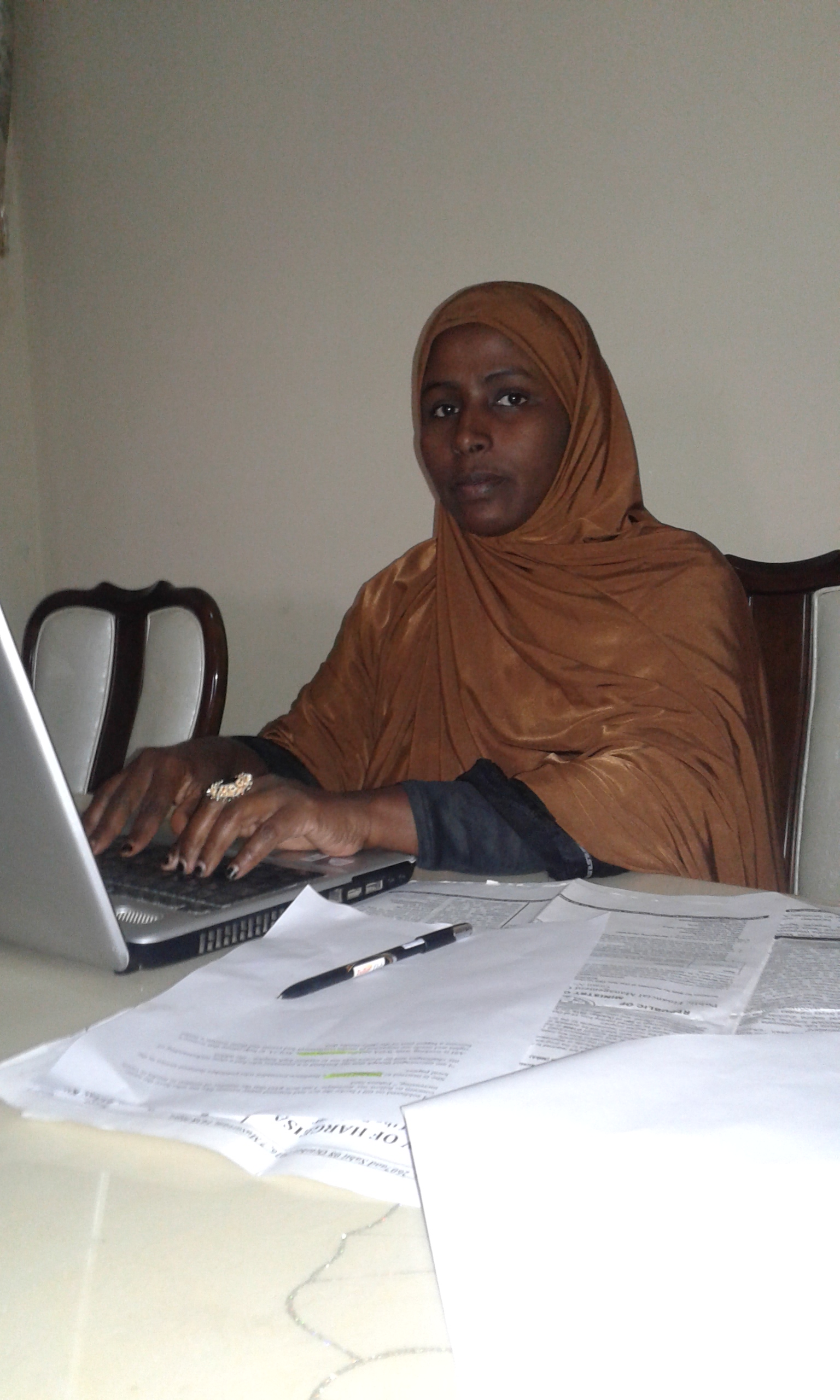Somaliland’s pioneering first woman print journalist urges other women to believe in themselves and look for new horizons to break the mould of male-dominated media.
“It is what you think about yourself that makes you who you are,” says Fahma Yusuf Essa.
“I ask many young ladies out there in Somaliland who want to join us in the media sector to believe in themselves and see beyond their horizons! Think big and aim high. There’s nothing that can stop you achieve your dreams,”
———————————————————————————————-
Born in 1984, Fahma blazed a trail that many other women are now following by becoming the first woman to work in the Somaliland print media.
“Working with men at the print media has not been easy. It is a male-dominated sector that does not often give space to women like me. It needs you to be patient and work against all odds.”
While pursuing her studies in Journalism and Mass Communication at the University of Hargeisa she became an intern at the country’s oldest newspaper, Jamhuuriya (Republican).
It wasn’t an effortless beginning. The men were not used to having a woman in the newsroom and paid little heed to Fahma’s sensitivities when they removed their shirts in the hot afternoons to chew Khat, the mild narcotic leaf that Somalis and Somalilanders use.
“I started working with Jamhuuriya to sharpen my journalistic skills and develop my passion for the profession further. It was indeed culturally difficult to interact with male editors and reporters who are chewing Kat in groups.”
But she was determined to tell women’s stories. “We, as women, do have special stories. These stories can only be well-narrated when women are talking to women…This is why we have created Women in Journalism Association (WIJA) to act as a voice to our voiceless Somaliland women.”
She explains that men believe journalism is not a profession for women – a barrier that women have to hurdle in many other sectors of society.
“We do not enjoy the same status with our male counterparts. This is simply because there is a widespread belief among our society that this job is not for us. It is ‘big’ shoe for us to fit in!”
A survey on women journalists’ status in Somaliland conducted by WIJA in 2016 highlighted the huge gap of gender inequality in the media sector, where women are not regarded as equals and do not command much respect as reporters, although they are often used as newsreaders or presenters, not as hard news scouts.
“Living with this harsh reality did not disappoint me or make me lose my fervor. I refused to accept such perceptions which belittle our place in the society. It rather gave me the zeal to face the cultural barriers!”
“I soldiered on till I broke the ace and inspired many women like me who have the same concern to follow my footsteps. I am now glad that the number of women in media is vastly increasing,” Fahma said.
She is married to Barkhad Dahir, a veteran journalist who publishes featured stories in the local papers and international media.
“I am encouraged though that my husband is a journalist who had a clear understanding of my challenges and he always asks me to explore high heights,” she added.
Adam Smith International (ASI) is working with WIJA to help ensure that women’s rights and needs are respected in media conferences and events and those women’s issues become a bigger part of the daily media diet.
 By: Abdikadir Askar- Communications Lead
By: Abdikadir Askar- Communications Lead































